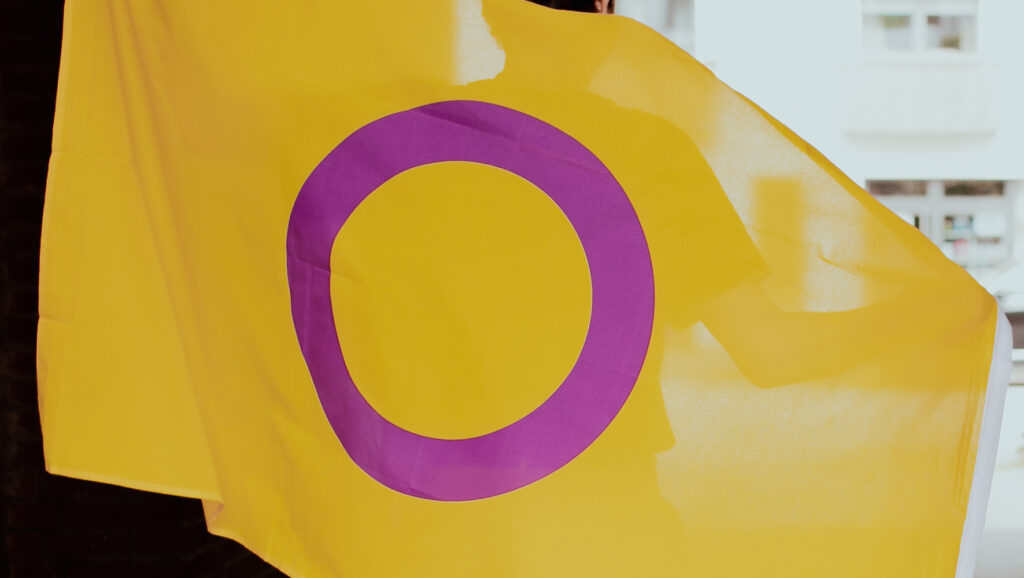
Intersex Awareness Day was founded in 1998 and takes place on the 26. of Oktober every year. This day is supposed to raise awareness for the Inter* sex community, and shed light on their struggles, discrimination and everyday issues. It is derived from the latin prefix “inter” which means “in between”.
Intersex is a term to describe every person with biological assets (chromosomal, gonodal, hormonal, anatomical) that have more than only male or female significance. in some cases, intersexual assets might be visible at birth, in other cases theyre not visible until puberty. some hormonal or chromosomal variations might not be visible at all.
Intersex is a term to describe every person with biological assets (chromosomal, gonodal, hormonal, anatomical) that have more than only male or female significance. in some cases, intersexual assets might be visible at birth, in other cases theyre not visible until puberty. some hormonal or chromosomal variations might not be visible at all.
Intersexuality exists in many different ways, cause beside the “standard” sets of chromosomes XX and XY, there are still more ways ( for example XXY) for the chromosomal attributes of a person. there is no “right” way to be Intersex. Intersexuality is due to biological attributes, and differentiates from sexual- and gender identity.
A big step towards freedom and self-decided lives for Intersex people was achieved in 2021, with a new law that forbids genital surgery on Intersex children.
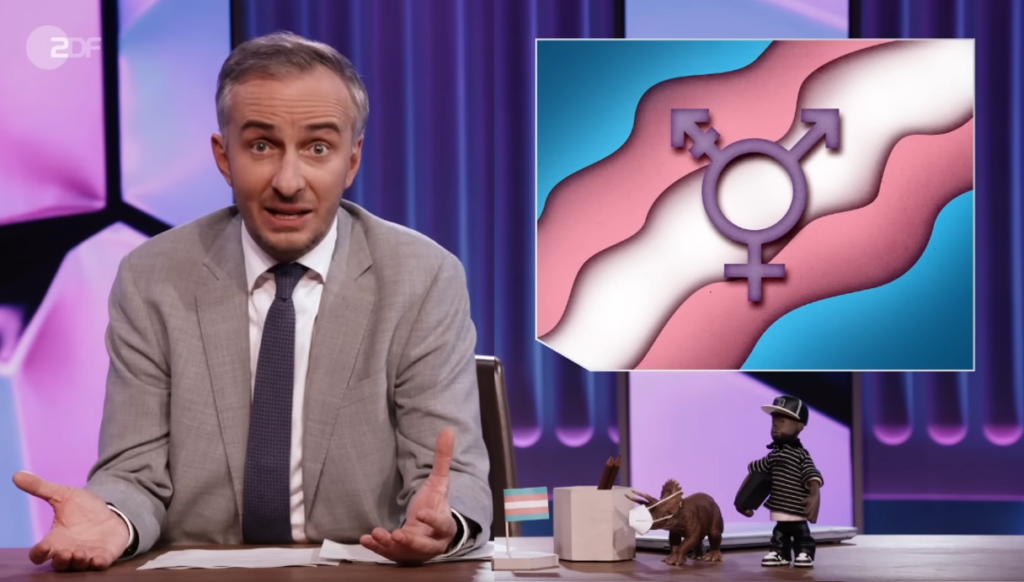
Equal rights for all?
In ZDF Magazin Royale, Jan Böhmermann settled accounts with trans* hostility and gave trans* people a voice. This is primarily about the right of free development for all, which is engrained in the German Basic Law (cf. Art. 2 GG). For the free development of identity, however, trans* persons still have to fight hard, because according to the currently valid “Transsexuellengesetz” they still have to undergo strongly degrading and discriminating procedures to adapt their civil status to their gender identity. As soon as next year, the 40 year old “Transsexuellengesetz” will be replaced by the new self-determination law. Some politicians and TERFS (trans excluding radical feminsits) want to prevent this by all means and thus deny trans* persons their own gender identity and restrict their free development.
” being trans is not fashion – but trans-hostility is”
He particularly takes aim at Alice Schwarzer, editor-in-chief of the magazine Emma, who calls trans* existence a “fashion”-statement. Böhmermann also presents AfD politician Beatrice von Storch and her trans-hostile propaganda-which downright denies the existence of trans people-in his show and explains what is really behind it. The satirist provides insights into the structures and power influences behind trans* hostile actors and campaigns. These are often entire networks and influential personalities. They include, for example, two oligarchs who work together with the Russian president and have invested around 188 million dollars in European anti-gender or anti-trans* campaigns up to 2018, or the American “Alliance Defending Freedom” (ADF), which has so far invested 23 million dollars in trans* hostile campaigns and commercials. Here, typical trans* hostile arguments are often used.
“Violence against women usually doesn’t happen in the women’s locker room, it happens at home”
In his show, Böhmermann debunks the typical arguments against trans* people and addresses the self-determination law that was passed. Thus, he argues against the “intrusion of trans* women into women’s shelters” and the “exploitation of the women’s quota” by addressing the violence against women that mostly takes place in one’s own home and not in the public locker room. Against the exploitation of the women’s quota by trans* women, the satirist argues that people would have it much easier with the “men’s quota” anyway, so for what reason should one change the personal status? The presenter also debunks the often-used argument of biological sex by showing that there are more than just two biological sexes.
Trans* hostility is an everyday evil of our society, which is not only strongly discriminatory and wants to deny people their identity, but also violates the Basic Law. Everyone should be able to live out their own identity at any time and in any place without restriction and without fear of negative consequences and violence. If you would like to help your trans* colleagues to live a discrimination-free everyday life also at the workplace, we recommend our free HOW TO guide on the topic of trans* and transition at the workplace.
MORE TIPS FOR TRANS* PEOPLE
Here at a glance is an excerpt on further assistance:
- Seek allies and role models within the company.
- If possible, work with the company to create a communication and action plan.
- Very important: You set the pace!
- Network with the LGBTIQ network, if one exists. We have compiled a list of LGBTIQ networks in companies and organizations.
TIPS FOR COMPANIES AND ALLIES
- A Transition Guide clearly specifies who is responsible. Note: the trans* person determines the pace and whether an action should be implemented. Every transition is individual
- Enable name and pronoun changes before the official decision is made.
- Training sensitize HR and management
- Establish and strengthen an internal LGBTIQ network with dedicated trans contact persons
- Inform about the topic trans*
- Use gender inclusive language, ask for a person’s pronouns so they use the one chosen by the trans* person and not their deadname. Deadname is the old, discarded name of a trans* person.
- Only ask questions that you would answer yourself
- Consciously stand up for the rights and against the discrimination of trans* persons
advice centers
BUNDESVERBAND TRANS*
“The Bundesverband Trans* (BVT) sees itself as a federation of individuals, groups, associations, federations and initiatives at regional, state and national level whose common endeavor is the commitment to gender diversity and self-determination and the commitment to human rights in terms of respect, recognition, equality, social participation and health of trans persons or persons not located in the binary gender system.”
DEUTSCHE GESELLSCHAFT FÜR TRANSIDENTITÄT UND INTERSEXUALITÄT E.V.
“The dgti has set itself the goal of promoting the acceptance of transidents within society and counteracting their stigmatization. It should advise and support those affected and interested, if this is desired. An essential aspect of the work should be the (re-)integration of affected persons into the work process, in order to counteract the danger of social decline, which is still associated with social change today. It advocates more openness to one’s own identity and takes into account the diversity of human existence.”
TRANSMANN E.V.
“Nationwide, volunteer-based, non-profit association for all woman-to-male (FzM/FtM) trans* and inter* people.”
TRANSINTERQUEER E.V.
“TrIQ is a social center and a politically, culturally and in the research field active association, which stands up for trans, intersex and queer living people in Berlin and beyond.”
TRANS*INTER*BERATUNGSSTELLE
“The project of the Münchner Aids-Hilfe e.V. is equally there for trans* and inter* people as well as their relatives and friends.”
TGEU
“TGEU is a membership-based organization that was founded in 2005. Since then, TGEU has steadily grown and established itself as a legitimate voice for the trans* community in Europe and Central Asia, with 157 member organizations in 47 different countries.”
Trans* Awareness Week and Trans Day of Remembrance
The week of November 14-20, 2022 is trans* Awareness Week. The main goal is to create visibility for the trans* community and to draw attention to problems that trans* people have to face every day. The week ends on November 20th with the trans* Day of Remembrance which is an international day of remembrance for trans* people who died in the last year due to trans* violence. On this occasion we call for solidarity and active engagement for the rights of trans* people and demand this also from the side of politics.
To give visibility to the history of the trans* community, in this post we introduce you to five historical trans* pioneers.

Alan L. Hart (*1880 †1962)
Alan L. Hart was a trans* man who was not only the first person in the U.S. to receive a total hysterectomy, but Alan was also a writer, researcher, and physician who saved the lives of several thousand tuberculosis patients through modern x-ray diagnoses.
Dora (Dorchen) Richter (*1891 †unknown)
Dora “Dorchen” Richter is a historically important trans* woman. She was the first known person in Germany to undergo complete gender reassignment between 1922 and 1931. Dorchen worked as a domestic servant alongside several other trans* people for Magnus Hirschfeld, the director of the Berlin Institute for Sexual Sciences, until it was attacked and destroyed by a Nazi mob in 1933. It is unclear, however, whether Dora was murdered in this attack or died at the hands of Nazis over the next few years, as there were no further records of her from that day on.
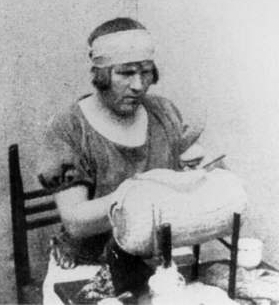
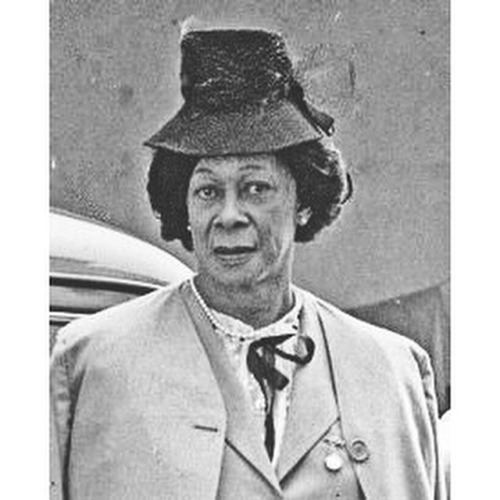
Lucy Hicks Anderson (*1886 †1954)
Lucy Hicks Anderson was a true trans* pioneer of her time. Even as a young child, she told her parents that she preferred to be a girl and be called Lucy. Lucy married two men in her life and fought for legal effectiveness of her marriage, as she was assigned to the male gender at birth. This made her a very early campaigner for marriage for all as well as for the rights of trans* people.
Willmer “Little Axe” Broadnax (*1916 †1992)
Willmer Broadnax, one of the first recorded POC trans* men in the U.S., is also an exciting trans* personality, although hardly anyone knew him until his death. It was only after he was stabbed to death by his partner in an argument that an autopsy revealed he was a trans* man. Willmer was not an unknown person in his lifetime; he was a nationally famous and popular gospel singer, known by his nickname “Little Axe.”
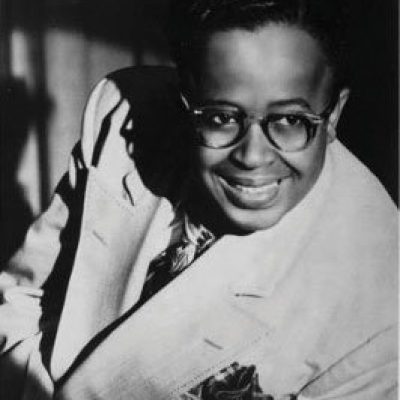
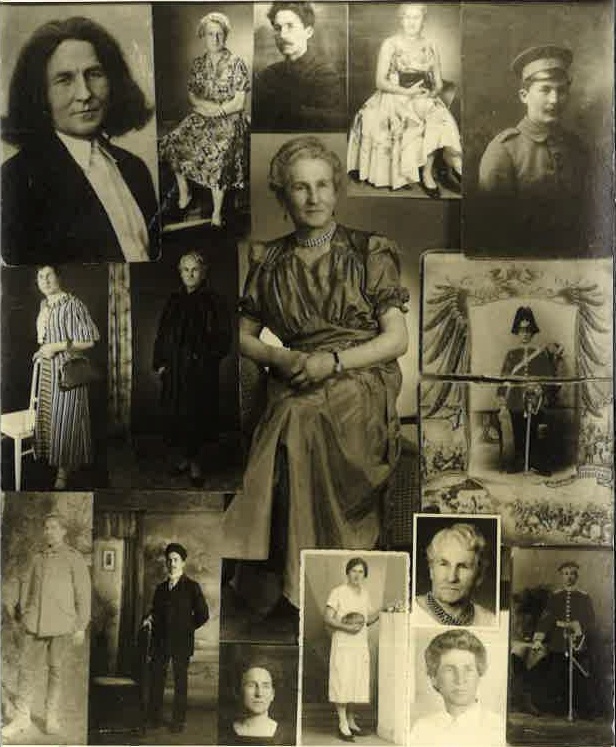
Toni Simon (*1887 †1979)
Today, we would call Toni Simon a German pioneer of non-binary life. On the occasion of Toni’s seventieth birthday in 1956, a collage of Toni’s various phases of life was created, which was then also sent as a postcard. In it Toni can be seen in different gender roles at a time, especially at the beginning Toni was mostly in male military uniforms and suits. As Toni grew older, Toni chose increasingly fancy dresses. Doing so, Toni wanted to break the rules of binarity and proved that gender binaries can be broken.
More tips for trans* people
Here are further ideas for trans* people in a workplace:
- Seek allies and role models within the company.
- If possible, work with the company to create a communication and action plan.
- Very important: You set the pace!
- Network with the LGBTIQ network, if one exists. We have compiled a list of LGBTIQ networks in companies and organizations.
Tips for Companies and Allies
- A Transition Guide clearly specifies who is responsible. Note: the trans* person determines the pace and whether an action should be implemented. Every transition is individual
- Enable name and pronoun changes before the official decision is made.
- Training sensitize HR and management
- Establish and strengthen an internal LGBTIQ network with dedicated trans contact persons
- Inform about the topic trans*
- Use gender inclusive language, ask for a person’s pronouns so they use the one chosen by the trans* person and not their deadname. Deadname is the old, discarded name of a trans* person.
- Only ask questions that you would answer yourself
- Consciously stand up for the rights and against the discrimination of trans* persons
Advice centers
Bundesverband trans*
“The Bundesverband Trans* (BVT) sees itself as a federation of individuals, groups, associations, federations and initiatives at regional, state and national level whose common endeavor is the commitment to gender diversity and self-determination and the commitment to human rights in terms of respect, recognition, equality, social participation and health of trans persons or persons not located in the binary gender system.”
Deutsche Gesellschaft für Transidentität und Intersexualität e.V.
“The dgti has set itself the goal of promoting the acceptance of transidents within society and counteracting their stigmatization. It should advise and support those affected and interested, if this is desired. An essential aspect of the work should be the (re-)integration of affected persons into the work process, in order to counteract the danger of social decline, which is still associated with social change today. It advocates more openness to one’s own identity and takes into account the diversity of human existence.”
Transmann e.V.
“Nationwide, volunteer-based, non-profit association for all woman-to-male (FzM/FtM) trans* and inter* people.”
TransInterQueer e.V.
“TrIQ is a social center and a politically, culturally and in the research field active association, which stands up for trans, intersex and queer living people in Berlin and beyond.”
Trans*Inter*Beratungsstelle
“The project of the Münchner Aids-Hilfe e.V. is equally there for trans* and inter* people as well as their relatives and friends.”
TGEU
“TGEU is a membership-based organization that was founded in 2005. Since then, TGEU has steadily grown and established itself as a legitimate voice for the trans* community in Europe and Central Asia, with 157 member organizations in 47 different countries.”
BIG IMPACT INITIATIVE AWARD:
more* von OTTO
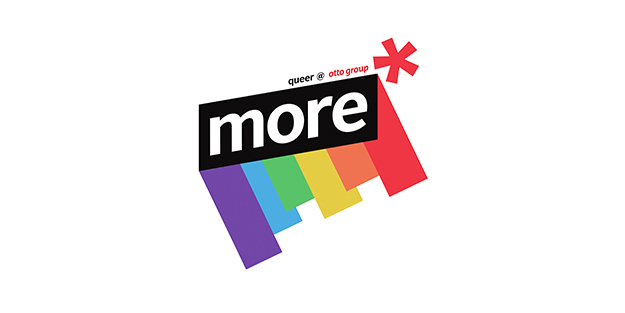
Immer noch traut sich nur ein Bruchteil der trans* Personen am Arbeitsplatz ein Coming Out zu, da sie Angst vor Diskriminierung der Mitarbeitenden haben und befürchten müssen, negative Konsequenzen zu erleiden. MORE* hat sich diese Thematik zu Herzen genommen und außerordentliches Engagement gezeigt: Für ein respektvolles, diskriminierungsfreies Miteinander und vor allem für die Normalisierung des Umgangs mit trans*Personen sowie die Sensibilisierung für das Thema trans* und Geschlecht im Allgemeinen.
Nicht zuletzt durch die Entwicklung des Transidentity-Guides konnte das Netzwerk erzielen, dass die Thematik einiges an medialer Aufmerksamkeit auf sich zog. Es folgten auch weitere Unternehmen, die einen eigenen Transidentity-Guide erstellen (werden). Dies war auch möglich, da MORE* den Guide für alle zugänglich, kostenfrei zum Download bereitgestellt hat.
RISING STAR AWARD:
pride@ergo
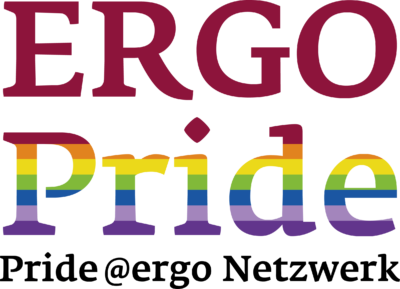
Vor allem die Vernetzung vom Netzwerk mit unterschiedlichen Unternehmensebenen, wie Diversity- und Kommunikations-Abteilung sowie die Unterstützung aus dem Vorstand und von der Schirmherrin, haben gezeigt, dass auch ein junges Netzwerk in kurzer Zeit viel erreichen kann und das egal ob intern oder extern.
Die breit gefächerten Aktionen und Verankerung in der Firmenstruktur – vom deutschlandweiten Hissen der LGBT*IQ-Flagge an den Unternehmensstandorten, der Teilnahme mit Truck am CSD Köln bis hin zum firmeninternen Thematisieren von LGBT*IQ-Belangen beim Azubi-Start oder in der Gesprächsarena – waren ausschlaggebend bei der Entscheidung für Pride@ergo.
GLOBAL LEADER NETWORK AWARD:
fujitsu pride

Insbesondere in LGBT*IQ-feindlichen Ländern setzt sich das Netzwerk dafür ein, dass queere Personen auch dort Zugang zum Netzwerk haben – entweder durch die Schaffung eines lokalen Netzwerkzweigs oder auch durch die Möglichkeit von einem anderen Land aus dem Netzwerk beizutreten. Zudem wurden – als erstes japanisches Unternehmen – 2018 die UN-Standards of Conduct zur Bekämpfung der Diskriminierung von Lesben, Schwulen, Bi-, Trans- und intersexuellen Menschen unterzeichnet. Ausschlaggebend bei der Entscheidung für Fujitsu Pride war zudem der Workplace Index sowie das Pride Pledge, mit dem sich Mitarbeiter_innen dazu verpflichten, als Allies oder als LGBT*IQ-Person andere innerhalb und außerhalb des Unternehmens zu unterstützen.
sustainability AWARD:
co-pride von continental

Die Aktionen von Proud Heroes bestechen durch ihre konsequente Ausrichtung an den Bedürfnissen der queeren Mitarbeiter_innen – auf Basis von jährlichen Befragungen. Das Netzwerk versteht es zudem, die umgesetzten Maßnahmen in allen Ebenen und Prozessen des Unternehmens zu verankern und so verbindliche Richtlinien zu schaffen, beispielsweise zu Transitionen, Diskriminierung oder Entsendungen ins Ausland. Damit ebnet es den Weg für langfristigen und nachhaltigen Wandel hin zu LGBT*IQ-Chancengleichheit am Arbeitsplatz.
Regularily, our board member Albert Kehrer invites an inspiring role model of the LGBT*IQ community or an LGBT*IQ Ally for a chat. You can look forward to an interesting exchange about role models and visibility in the LGBT*IQ community.
This event took place in German.
GUEST OF THE DAY

Dr. Gesa Heinrichs
Director – Campus Management & Corporate Procurement, 5th place OUT EXECUTIVES 2019
Dr. Gesa Heinrichs is the epitome of an Out Executive! She has been with OTTO for more than 20 years and is involved in a wide range of activities in addition to her management positions. After studying and earning her doctorate in Munich and Hamburg, Gesa brought versatile knowledge from theater and education sciences to the business world.
In 2000, she began her journey at OTTO, which has since led her to the position of “Director – Campus Management & Corporate Procurement”. At OTTO, she was also a founding member of the “Power of Diversity” initiative, is still involved in the resulting LGBT*IQ network “more” today and always stands for open (corporate) culture.
Regularily, our board member Albert Kehrer invites an inspiring role model of the LGBT*IQ community or an LGBT*IQ Ally for a chat. You can look forward to an interesting exchange about role models and visibility in the LGBT*IQ community.
This event took place in German.
GUEST OF THE DAY

Lars Ottmer
Head of controlling, SWISS International Airlines, 13th place PROUT EXECUTIVES 2021
Lars has worked in various positions at SWISS International Airlines and its parent Lufthansa Group since 2000. At the moment, he is the Head of Controlling at SWISS, and before that he held senior positions in HR, leadership development, market and fleet strategy within the Group. He has twice acutely fought for the survival of SWISS during this time, most recently because of the Corona pandemic.
Within the Group, Lars is committed to the LGBT*IQ community and open interaction. For example, he helped SWISS take a barely veiled stand in the “marriage for all” referendum in Switzerland, and in his younger years he was also a political activist, including as a member of the city of Zurich’s parliament. In his wild party years, he was also a co-organizer of the Zurich “Street Parade”.
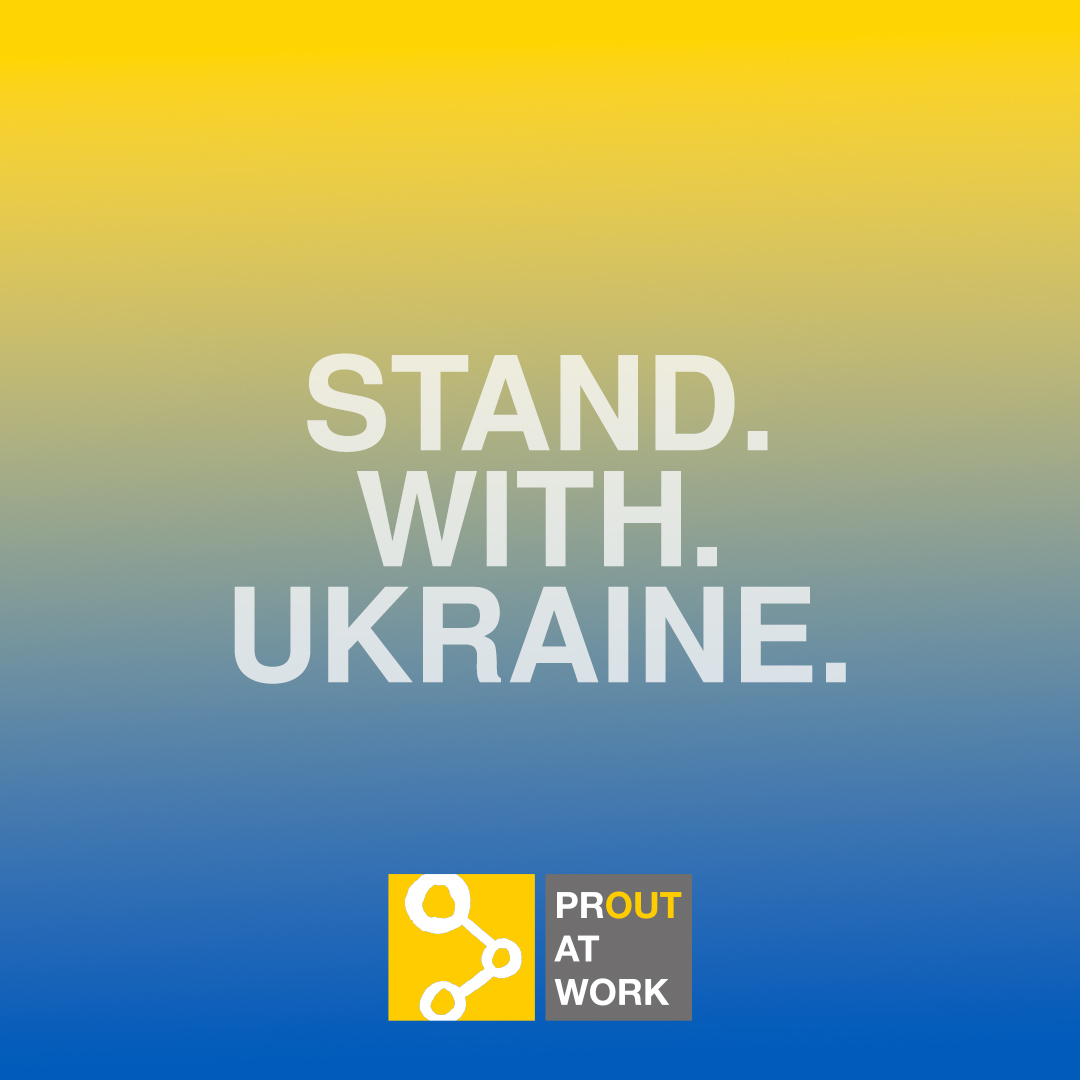
We stand in solidarity with all people in Ukraine who are affected by the Russian invasion and war. We know that the Russian regime is extremely queer-hostile and repressive. Therefore, if you would like to support, for example, the LGBT*IQ community or other associations and groups concretely and have the resources to do so, you are welcome to do so via the following pages.
Points of contact and donation options
Many people need immediate help in the current situation. That is why we have listed various donation options here. The list does not claim to be complete. Rather, it represents an excerpt that can be constantly supplemented.
Munich Kyiv Queer / Queere Nothilfe Ukraine
“The contact group Munich Kyiv Queer, formed in 2012 after the CSD in Munich, specifically advocates for the human rights of homo-, bi-, trans* and inter* people in Ukraine. The twinning between Kyiv and Munich is the basis for this.”
“Queere Nothilfe Ukraine is an association of representatives of various organizations from the LGBT*IQ community in Germany. We are in close contact with the human rights organizations on the ground, which use funds for the urgently needed care or evacuation of queer people. Every donation helps and is 100% earmarked.”
With their fundraiser they support activists who need money for transport, accommodation and food until they have found a safe place.
Quarteera e.V.
Quarteera e. V. is an association of Russian-speaking LGBT*IQ in Germany. With their donation campaign, the necessary funds for food, clothing, fees for legal aid, language courses for LGBT*IQ, will be financed.
Kharkiv Pride
KharkivPride is the largest LGBT*IQ Pride organizer in Ukraine, along with KyivPride, which created the event for the protection, equal rights and opportunities of LGBT*IQ people.
You have further input?
Feel free to contact us with specific places to go and ways to donate,
that we can include on the list.
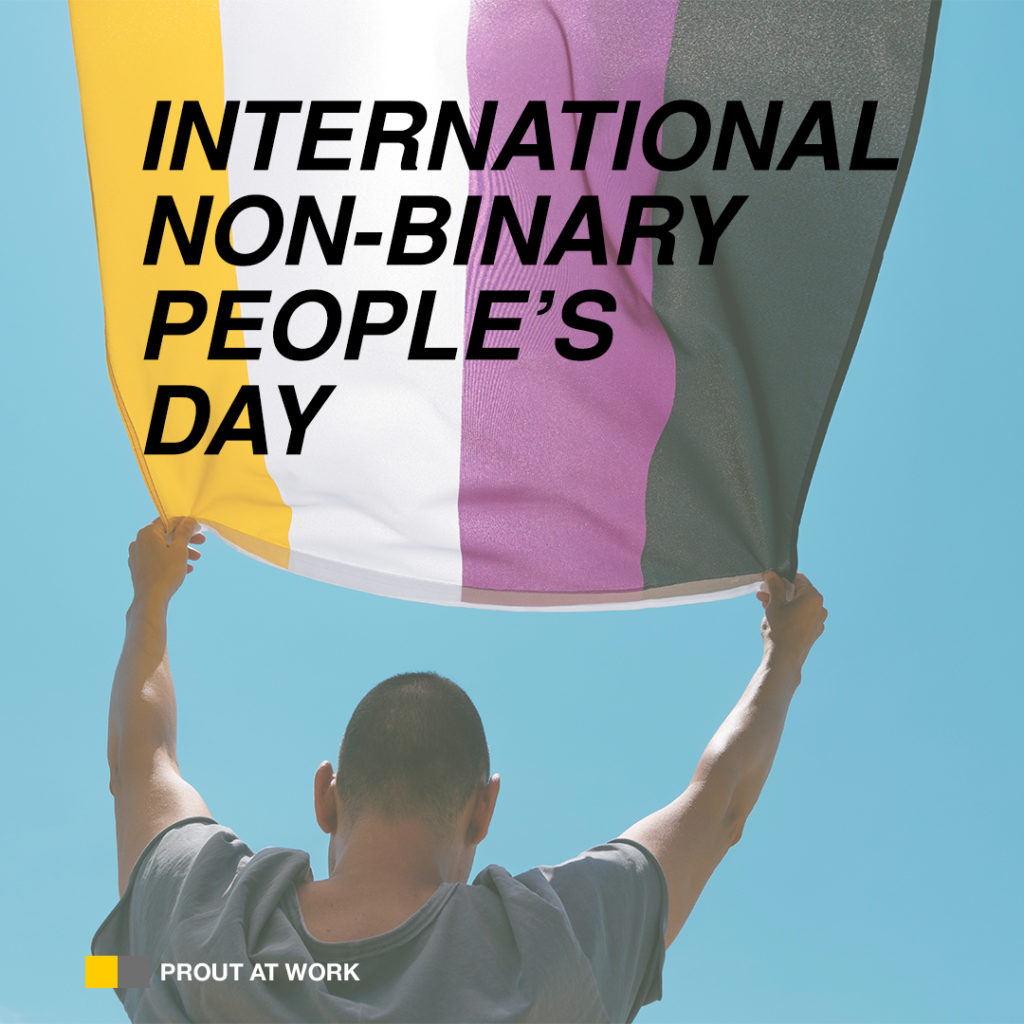
International Non-binary People’s Day has been held on July 14 since 2012. The date falls exactly between International Women’s Day in March and International Men’s Day in November. The day aims to raise awareness of the realities of life for non-binary people and to make issues visible that non-binary people face worldwide.
The terms non-binary, abinary, and genderqueer describe gender identities used by people who locate themselves outside the binary gender system. This includes, for example, agender, demigender and genderfluid people. Non-binary people can also be trans. However, trans people do not automatically assign themselves to a non-binary gender identity.
The symbolism behind the colors of the Non-binary flag:
- Yellow represents locating outside the binary gender system.
- White represents people who identify with multiple genders.
- Purple represents gender fluidity.
- Black represents people who do not identify with any gender.
Jo Labecka (NO PRONOUNS)
PROUT AT WORK-Foundation, Strategy & Corporate Partners
How do you identify and what does that mean to you?
I identify as genderqueer. For me, gender is a performance and a fluid continuum rather than a rigid, binary construct. Accordingly, I see myself outside of the binary system and feel the concept is artificial.
What are your experiences as a non-binary person?
I see my coming out as genderqueer as a kind of social work. An act that contributes to confronting people with the topic of being non-binary for the first time, so that they can deal with it. It is a process of self-discovery, as I discover new aspects of my identity over time and communicate accordingly to those around me. It is not an easy task because many still have little understanding of this topic. That means to show oneself again and again authentically and thus vulnerable, and thus also to have to come to terms with the fact that some try to deny my identity.
How can non-binary people be supported?
In any case, accept the new name of the non-binary person without expressing preference for the use of the old name. If certain pronoun usage is preferred, strive to follow that. In general, do not deny the existence of the non-binary identity, even if the concept is not comprehensible.
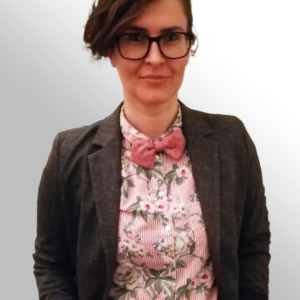
Tips and recommendations
10 Ways To Step Up As An Ally For Non-binary People
Young People Are Taking Control Over Their Gender Identity
Interviews with non-binary Accenture employees (DE)
Learn more about LGBT*IQ in our little LGBT*IQ ABC about terms like gender identity,
sexual orientation or gender expression.
#Rainbowgate
Pride Month ends in a few days and if the past weeks and political decisions, also here in Germany (e.g. Self-Determination Act), haven’t done it yet, the current events around UEFA’s decision make it clear once again that the decisive commitment to LGBT*IQ equal opportunities has to take place 365 days a year and cannot be taken for granted.
It’s no surprise that UEFA has banned the Allianz Arena from being lit up in rainbow colors. Now it has gone one better and turned the tables. In a posting, UEFA interprets the official request by the city of Munich as a political calculation. They themselves understand the rainbow as a non-political sign that is supposed to symbolize their own basic values – the illumination of the Allianz Arena is nevertheless out of the question.
A paradoxical statement that highlights the lack of confrontation with uncomfortable truths and reverses the responsibility for the current situation. With its decision, UEFA shoots itself an own goal – despite the emphasis on political and religious neutrality – because it sets a clear political signal itself. True to the motto: profit before people (lives).
With all the points worth discussing in dealing with #Regenbogengate, however, it should be clear and there is nothing to discuss: Passing laws that deliberately further oppress marginalized people, expose them to violence and make them invisible is a political act and goes against the commitment to human dignity and fundamental rights.
The lighting of the Allianz Arena could have been an important sign for LGBT*IQ people in Hungary, Poland, Germany and worldwide. A sign of solidarity and hope, which, however, must also be followed by action.
LGBT*IQ RIGHTS ARE HUMAN RIGHTS
As a foundation, we therefore also call on the companies involved in the EM to continue to exert pressure, not only today, but every day to show edge and attitude, to position themselves and to draw consequences in the respective countries. Words must be followed by deeds and the commitment for LGBTIQ must be intensified. Because LGBTIQ rights are human rights that are not negotiable.
Finally, a suggestion on the many great ways already mentioned to make the rainbow visible in the stadium tonight: Can’t the sponsor companies like Booking.com, Lieferando, VW, Heineken, FedEx, etc. spontaneously adjust their perimeter advertising?
We are curious about tonight and further reactions and look forward to an interesting and fair game of both teams.
Contact us
If you would like to learn more about our work or have questions about LGBT*IQ in the company, we would be happy to help you by email or phone call.
Regularily, our board member Albert Kehrer invites an inspiring role model of the LGBT*IQ community or an LGBT*IQ Ally for a chat. You can look forward to an interesting exchange about role models and visibility in the LGBT*IQ community.
GUEST OF THE DAY
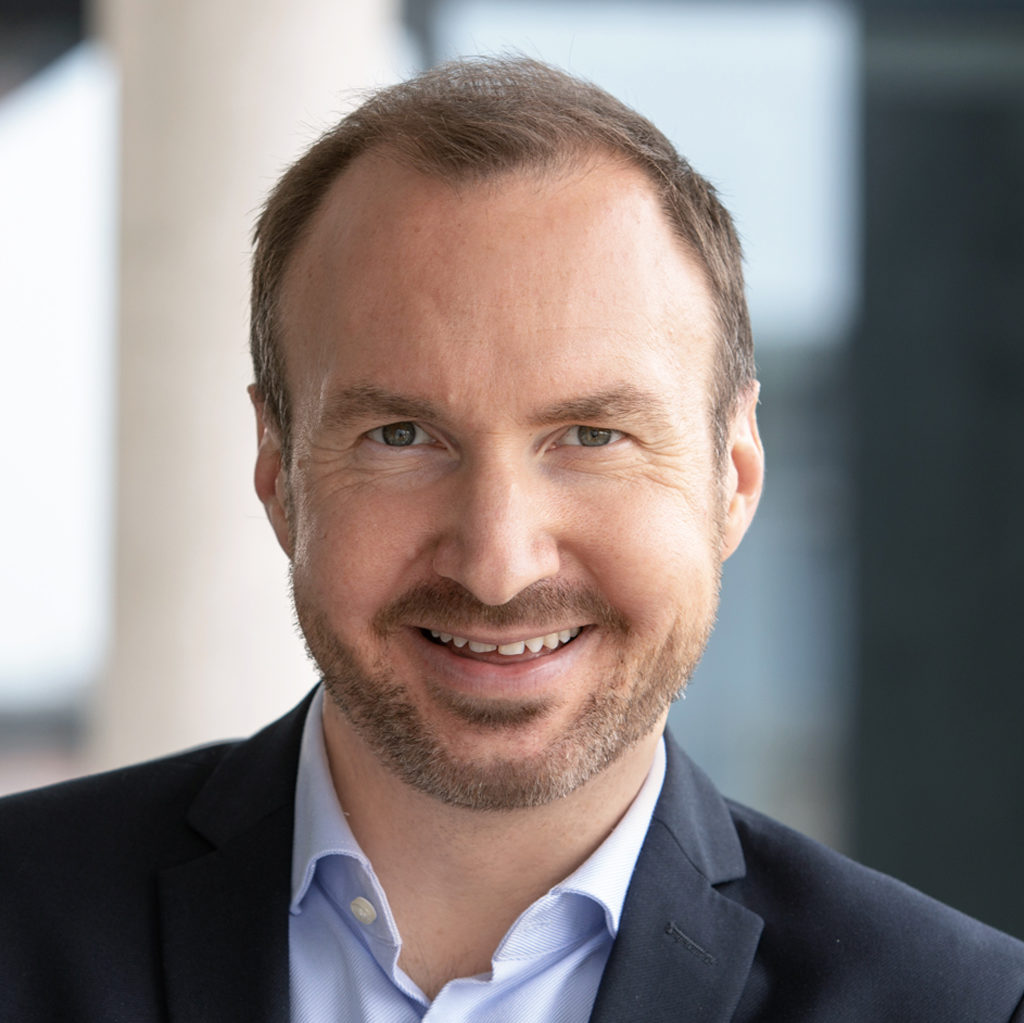
© Lichtbildatelier Eva Speith, Darmstadt
Philip Heßen
Head of HR Strategy & Transformation bei Merck
Ranked 6th on the TOP 100 OUT EXECUTIVES list 2020
Philip Heßen joined Merck KGaA, a leading science and technology company based in Germany, in 2014. Initially Philip held the position of Head of Global Rewards, followed by his role as Head of HR Germany and is currently responsible for the Global People and HR Strategy, acting as Head of HR Strategy & Transformation.
Philips professional career started with Siemens, where he was responsible for the initiation of a share-based incentive and establishing an employee-share-culture. In 2011, he transitioned to the high-tech company OSRAM as Global Rewards and Executive HR Manager and, among other things, supported the company’s flotation (IPO) and Divesture from the parent company Siemens.
